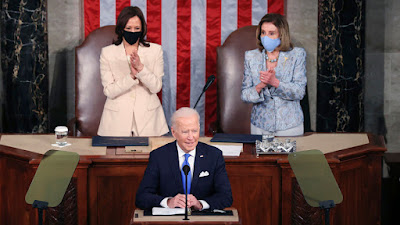 |
University of Colorado Regent Heidi Ganahl |
Photo via Colorado Times Recorder |
Gabrielle Bye in an
April 29 post in the Colorado Times Recorder collects political impressions about Republican CU Regent Heidi Ganahl’s possible run for statewide office in 2022. My bottom line assessment was she could be a frontrunner contender, but Colorado is still a major challenge for Republicans. My quotations follow.
Ganahl a Top Contender
Pollster and political analyst Floyd Ciruli believes that Ganahl is a top contender to run for another statewide position in 2022.
“She would be a front-runner for almost any position in the state, and one of the few people that would have some statewide credibility,” Ciruli told the Colorado Times Recorder. “…With both Republicans, and I would say–I don’t think the public knows her that well–but what I would say would be the ‘attentive public.'”
Additionally, Ganahl, as a female entrepreneur in an education role, also gives her an advantage, says Ciruli.
“I think being a woman would also help; being involved in education, I think, is very positive for her,” said Ciruli. “I know Republican leaders are often putting together panels or speaking groups, and they almost always like to have her and recommend her. So I think my opening statement that she would start in a very good position is true.”
An Uphill Battle in Colorado
“The real question is,” said Ciruli, “…can a Republican take this on, given the recent track record at least since 2018, which brought, as you know, the Democrats to every constitutional office in the state, and was reinforced by Cory Gardner, and the president doing so poorly in 2020? So, that’s the difficult road.”
That being said, Ganahl still has a fighting chance, Ciruli believes.
“Being the governor is not an easy job these days,” Ciruli said with a chuckle, pointing to yearly polling during the onset of the pandemic, when Governors Cuomo and Newsom were popular. “…Now, [governors] are just struggling, and Mr. Biden is at maybe 54% popularity. Mainly because they had to make so many difficult decisions, and this pandemic has not gone away. It keeps resurging and disappearing, and of course, we’re so polarized over whether you want to wear masks and whether we should close things down. So I do think the governor has some vulnerabilities, because he’s been the governor in a very difficult time.”
Ciruli also suggested that some pandemic points of contention, like whether or not to open the schools, can give Ganahl a platform to run on.
Compared to other members of the GOP who are easily categorized as extremists, Ganahl carries a more moderate image, both analysts said.
“That may be the benefit of being a regent, which is seen as a little less partisan, even though we all know obviously that there are Democrats and Republicans [on the board],” Ciruli said.












































